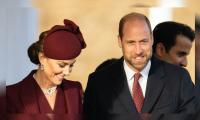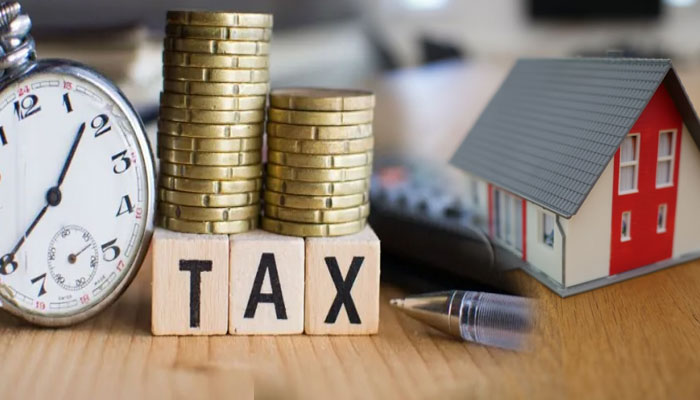Senate body rejects FBR proposal to raise advance tax on sale, purchase of property
The Senate Standing Committee on Finance and Revenues continued its day-long deliberations for finalising recommendations on the Finance Bill 2022
ISLAMABAD: The Senate Standing Committee on Finance and Revenues has outright rejected the FBR’s proposal to increase advance tax on the sale and purchase of property from 1 to 2 percent for filers in the budget 2022-23. However, the Senate panel extended its support and approved increasing the advance tax from 2 to 5 percent on the sale and purchase of property for non-filers.
The Senate Standing Committee on Finance and Revenues continued its day-long deliberations for finalising recommendations on the Finance Bill 2022 here at the Parliament House under the Chairmanship of Senator Saleem Mandviwalla on Wednesday.
The committee proposed amendments in the Finance Bill 2022, recommending the government to charge 1 percent market value as deemed income tax on plots valued at more than Rs25 million after five years of transfer of land.
Initially, the Senate panel unanimously rejected the FBR’s proposal to charge 1 percent market value on plots valued at more than Rs25 million but in their second thought, they recommended that the deemed income should be taxed if the plot was not constructed in five years period.
The Senate panel also proposed amendments in the Capital Gains Tax (CGT) on the holding period and recommended that the holding period of the plot should be reduced from 6 to 5 years and to revive the existing slabs for payment of CGT.
Sardar Tahir Mehmood, Real Estate Association representative along with representatives of Islamabad Chambers of Commerce and Industries (ICCI), appeared before the committee and argued that investment in real estate would run away from Pakistan if the government did not bring changes in tax proposals.
Senator Mohsin Aziz, belonging to PTI, said that there was a complete shift with the change of regime and referred that the PTI government promoted construction and real estate sector but now the FBR was moving in the other way.
The FBR Chairman, Asim Ahmad, defended the FBR policies and said that neither the investment would fly out from Pakistan nor would he extend a guarantee to it.
The representatives of the Pakistan National Heart Association (PANAH) informed the Senate panel that sugary drinks were contributing a lot to causing obesity, diabetes, heart diseases, cancer, and others and resulting in 1,100 persons dying every day. They proposed to the government to slap 20 percent Federal Excise Duty (FED) on all types of sugary drinks. The FED on aerated water was 13 percent and it should be increased to 20 percent. The FED on juices at the rate of 5 percent was withdrawn a couple of years back, so it should be slapped again at higher rates. The FBR chairman recommended the committee to hear other side point of view before making its recommendations.
The committee approved the proposal to increase the rate of the Federal Excise Duty (FED) on the club, business, and first-class travel by air from Rs10,000 to Rs50,000. It was apprehended that people might start purchasing tickets from foreign/transit destinations. Minister of State for Petroleum, Senator Musadik Malik told the committee that the government's policy in the new federal budget was to impose additional taxes on the rich class and those having the capacity to pay taxes. While justifying increased FED on air tickets for the rich class, he said that if any Pakistani wanted to avoid this FED and intended to buy a ticket from a foreign/transit destination, he would have to buy the ticket by paying in dollars and pounds and also pay taxes on credit card payments on international transactions.
Chairman of the Panel Senator Saleem Mandviwalla was of the view that the taxation of international air travel should be done in such a way that the revenue of the FBR stays in Pakistan and it does not transfer to other countries.
-
 Ariana Madix And Tom Sandoval Settle Legal Dispute
Ariana Madix And Tom Sandoval Settle Legal Dispute -
 Justin Baldoni Says He Held A Prayer Gathering Before Deposition In Blake Lively Case
Justin Baldoni Says He Held A Prayer Gathering Before Deposition In Blake Lively Case -
 Travis, Jason Kelce React To Mom Donna's 'Traitors' Stint
Travis, Jason Kelce React To Mom Donna's 'Traitors' Stint -
 Enjoy Lee, Takaichi’s Viral Jamming Session, In Case You Missed It
Enjoy Lee, Takaichi’s Viral Jamming Session, In Case You Missed It -
 MrBeast Admits He's Unsure About Having Kids - Here's Why
MrBeast Admits He's Unsure About Having Kids - Here's Why -
 Prince Harry Carries Heartbreaking Hope For Archie, Lilibet Who Are Not Sharing In Their Royal Heritage
Prince Harry Carries Heartbreaking Hope For Archie, Lilibet Who Are Not Sharing In Their Royal Heritage -
 Tom Brady Breaks Silence On 'personal Life' After Alix Earle Rumors
Tom Brady Breaks Silence On 'personal Life' After Alix Earle Rumors -
 Guy Fieri Drops Health Update After Accident That Left Him In A Wheelchair
Guy Fieri Drops Health Update After Accident That Left Him In A Wheelchair -
 Experts Weigh In: Is Prince Harry Operating A PR Stunt Or The Invictus Games’
Experts Weigh In: Is Prince Harry Operating A PR Stunt Or The Invictus Games’ -
 Inside Kate Middleton’s Biography With Secrets From St Andrews To Harry & Meghan’s Royal Exit
Inside Kate Middleton’s Biography With Secrets From St Andrews To Harry & Meghan’s Royal Exit -
 Paul Mescal Reveals Shocking Move He Made In 'Hamnet'
Paul Mescal Reveals Shocking Move He Made In 'Hamnet' -
 'Kanye West Is Human Too'
'Kanye West Is Human Too' -
 Prince William Hands Kate Middleton Something Highly Sensitive To Manage With Coronation
Prince William Hands Kate Middleton Something Highly Sensitive To Manage With Coronation -
 Critics Get Honest About 'A Knight Of The Seven Kingdoms'
Critics Get Honest About 'A Knight Of The Seven Kingdoms' -
 Goldie Hawn Spills Secret Behind Kate Hudson’s Screen Talent
Goldie Hawn Spills Secret Behind Kate Hudson’s Screen Talent -
 Why Harry Unlikely To Meet William, Kate During UK Return?
Why Harry Unlikely To Meet William, Kate During UK Return?




